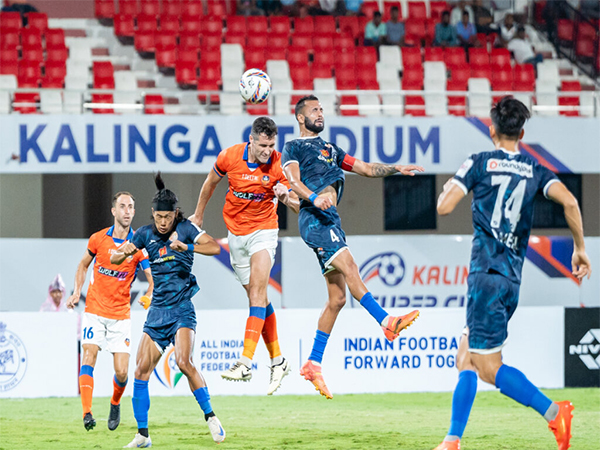SC issues notice to Centre on plea over marital rape issue
Jan 09, 2023

New Delhi [India], January 9 : The Supreme Court on Monday tagged and issued notice on a plea seeking to strike down Exception 2 to Section 375 of the Indian Penal Code, which immunes husband of criminal charges for non-consent sex with wife in a marital relationship.
Exception 2 to Section 375 of the Indian Penal Code, which defines rape, states that sexual intercourse by a man with his wife is not rape unless the wife is below 15 years of age.
A bench headed by Chief Justice DY Chandrachud and Justice PS Narasimha issued a notice to the Centre and tagged the petition with other pending petitions.
The petition was filed by one activist Ruth Manorama through the advocate on record Ruchira Goel.
The petitioner has urged to strike down Exception 2 to Section 375 as it violates Articles 14, 15, 19 and 21 of the Constitution of India, and consequently striking down Section 376B of the Indian Penal Code, 1860, as also Section 198B of the Code of Criminal Procedure 1973 as violative of Article 14, 15, 19 and 21 of the Constitution of India.
The petitioner Ruth Manorama is a Dalit, anti-caste and women's rights activist who, which in 2006, was awarded the Right Livelihood Award for her work. Manorama claimed that she spent her life advocating for the rights of individuals from marginalised sections of society and the right to equality for women.
The Petitioner has felt compelled by her conscience to approach this Court, as the present law operates to the detriment of women across the country who are victims of forced non-consensual sex i.e rape with their husbands with no legal recourse to prosecutions and without protections under anti-rape laws. "It affects women who go through physical, mental and emotional trauma every day as a result of the marital rape exception that does not recognise
their husband raping them as "rape" and legitimises and upholds the marital right of a man to the body of his wife. Despite the progression of the law and the constitutional recognition of the equality of men and women, even in a marriage, the exception continues to exist in the
statute books," the petition said.
According to the petition, Section 375 of the Indian Penal Code defines and sets out the ingredients of the crime of rape. Rape is defined as sexual intercourse with a woman against her will, without her consent, or in circumstances under which her consent is vitiated. Exception 2 to Section 375 of the IPC (the "marital rape exception", or the "MRE") states that "sexual intercourse by a man with his own wife, the wife not being under fifteen years of age, is not rape." The MRE thus denies to one class of women - married women - the legal protections and the legal remedies offered by the criminal law of rape. It provides blanket immunity to one class of perpetrators - married men - from prosecution for rape. The MRE makes consent irrelevant. Legal immunity is triggered solely by the status of the parties (married or unmarried).
Earlier All India Democratic Women's Association (AIDWA) among others moved the Supreme Court against Delhi High Court's split verdict on issues relating to criminalising marital rape matters.
Two- judges Bench of Delhi HC on May 12 pronounced a split verdict on an issue relating to criminalising marital rape. Delhi HC's Judge Justice Rajiv Shakdher ruled in favour of criminalising while Justice Hari Shankar disagreed with the opinion and held that Exception 2 to Section 375 does not violate the Constitution as it is based on intelligible differences.
AIDWA was represented by advocate Karuna Nundy and the plea was filed through advocate Rahul Narayan.
AIDWA, in its plea, had said that the exception allowed to marital rape is destructive and in opposition to the object of rape laws, which clearly ban sexual activity sans consent. It places the privacy of a marriage on a pedestal above the rights of the woman in the marriage, the plea said.
The petition said that Marital Rape Exception is in violation of Articles 14, 19(1)(a) and 21 of the Constitution.

















